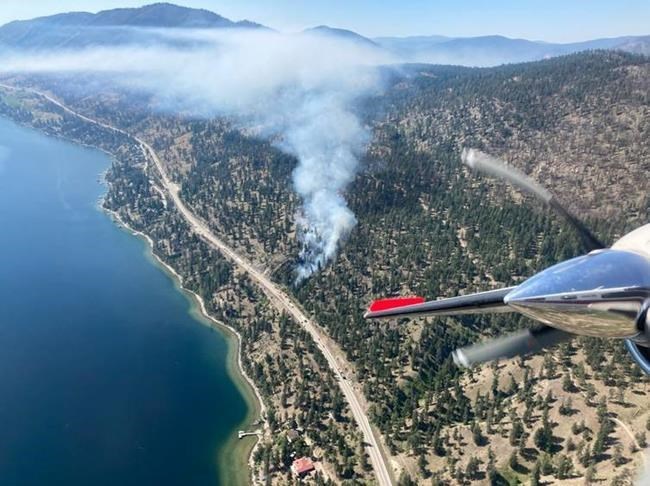The British Columbia Centre for Disease Control is warning residents to prepare for what could be a smoke-filled summer.
Sarah Henderson, scientific director of Environmental Health Services at the BCCDC, says smoke from wildfires has filled the province’s skies every year from 2016 to 2020.
“There is no reason to believe 2021 will be any different,” she said. “Let’s start getting ready for the smoke now rather than waiting until it arrives.”
In a recent notice, the BCCDC says that the gases and fine particulate matter in smoke can be inhaled deep into the lungs and cause inflammation and irritation. Some of the other components of smoke can also irritate the eyes, nose, throat and lungs.
“In 2017, 2018 and 2020, we experienced consecutive days and weeks of the worst air quality that most people will ever experience in British Columbia,” Henderson said. “We know that smoke really affects how people feel when it’s happening.”
There is also growing evidence that exposure to seasonal wildfire smoke can have longer-lasting impacts on health, she said.
While the timing of wildfire smoke is mostly unpredictable, the BCCDC recommends taking the following measures before the smoke arrives:
Be aware of people in your household who may be more sensitive and susceptible to wildfire smoke including those with chronic conditions like asthma, COPD, heart disease, or diabetes, pregnant people, infants and children, and older adults.
For those who require rescue medications, especially for respiratory conditions like asthma, stock up to ensure you have supplies on hand for when the smoke arrives.
Consider purchasing a portable air cleaner with a HEPA air filter to reduce particulate matter indoors.
Use a well-fitted respirator or three-layer cloth or disposable mask outdoors. A good fit around the mouth and nose is the most important thing; inhaled air must pass through the material of the mask, not around it.
People working outdoors should consult their occupational health and safety team about wildfire smoke protection.
During smoky times, keep indoor air cleaner by closing windows, recirculating air through a forced-air system, and using an air cleaner.
For more information about wildfire smoke and its impact on your health, go to bccdc.ca/wildfiresmoke.



